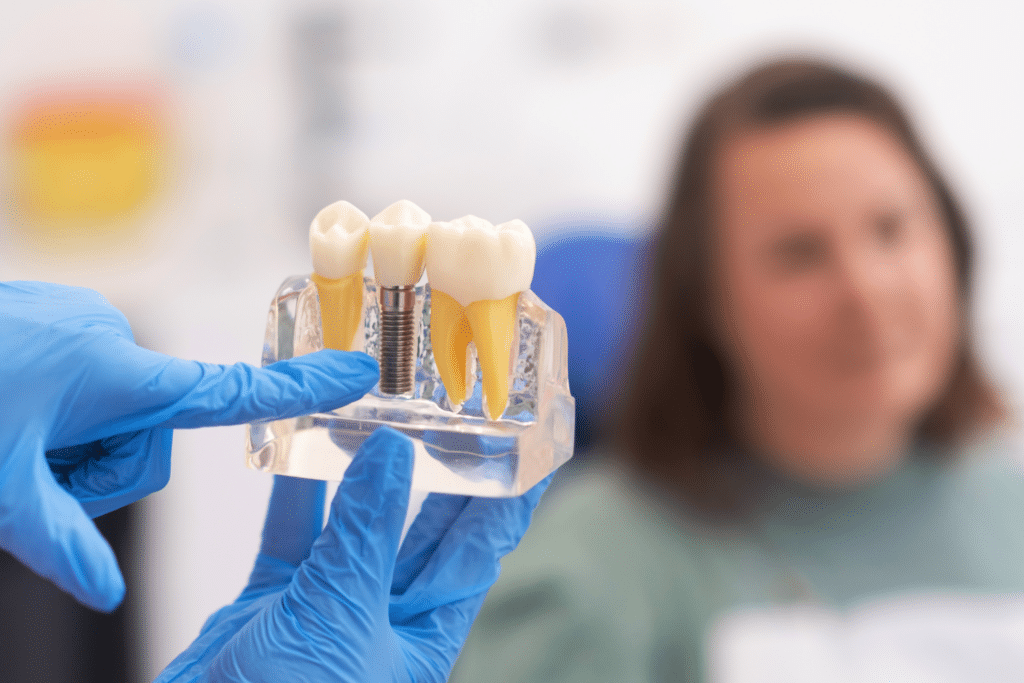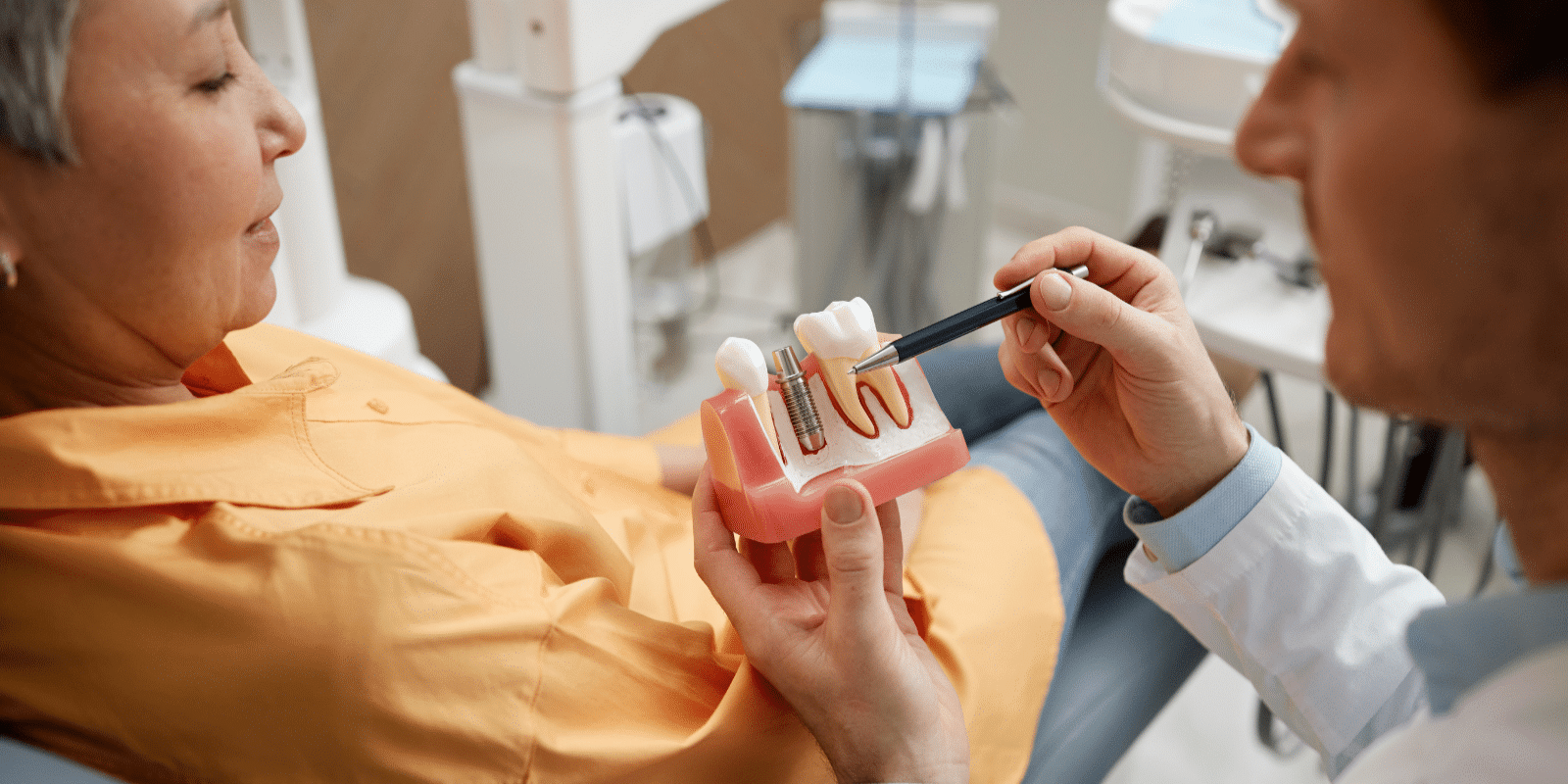How Many Days Should You Rest After Getting a Dental Implant?
Dental implants are a popular and effective solution for replacing missing teeth. They provide a durable and natural-looking option that can improve both the function and aesthetics of your smile. However, one crucial aspect of a successful dental implant procedure is adequate rest and recovery. Understanding how much rest you need after getting a dental implant is essential to ensure proper healing and long-term success of the implant.
In this comprehensive guide, we will explore the recovery process after a dental implant, including how many days you should rest, what to expect during recovery, and tips for ensuring a smooth healing period.
Understanding Dental Implants
What is a Dental Implant?
A dental implant is a titanium post surgically placed into the jawbone to serve as a replacement root for a missing tooth. Once the implant integrates with the bone (a process known as osseointegration), a dental crown or other restoration is attached to complete the replacement tooth.

The Dental Implant Procedure
The dental implant procedure typically involves the following steps:
- Initial Consultation: Your dentist evaluates your oral health, takes X-rays, and plans the implant placement.
- Implant Placement: The titanium post is surgically inserted into the jawbone.
- Healing Period: The implant integrates with the bone over several months.
- Abutment Placement: Once osseointegration is complete, an abutment is attached to the implant.
- Final Restoration: A custom-made crown, bridge, or denture is placed on top of the abutment.
The Importance of Rest After Dental Implant Surgery
Rest is a critical component of the recovery process following dental implant surgery. Adequate rest helps reduce swelling, manage pain, and promote healing. Skipping or shortening the rest period can lead to complications such as delayed healing, infection, or implant failure.
How Many Days Should You Rest?
Immediate Post-Procedure Rest
- First 24 Hours: The first 24 hours after dental implant surgery are crucial. You should rest and avoid strenuous activities to minimize swelling and bleeding. Keep your head elevated, even while sleeping, to reduce swelling.
- Day 1 to 3: During these initial days, you should continue to rest and avoid physical exertion. Most patients experience some discomfort, swelling, and bruising, which can be managed with prescribed medications and cold compresses.
The Initial Recovery Period
- Week 1: The first week after the procedure involves significant healing. It’s advisable to avoid any heavy lifting, intense exercise, or other activities that could strain your body. Follow your dentist’s instructions regarding oral care and medications.
- Diet: Stick to a soft food diet for the first few days to avoid irritating the surgical site. Avoid hot, spicy, or hard foods that could disrupt the healing process.
Long-Term Healing and Integration
- Weeks 2 to 4: Most patients can return to normal activities after the first week, but it’s essential to continue to be mindful of your body’s signals. Avoid excessive physical activity that could impact the healing implant.
- Follow-Up Appointments: Regular follow-up appointments with your dentist are crucial to monitor the healing process and ensure the implant is integrating well with the bone.
Factors Affecting Recovery Time
Complexity of the Procedure
- Type of Implant: The complexity of the implant procedure can influence the recovery time. Single implants may have a shorter recovery period compared to multiple implants or full-mouth restorations.
- Bone Grafting: If bone grafting was necessary prior to implant placement, the recovery time might be extended.
Individual Health Factors
- General Health: Your overall health can impact the healing process. Conditions such as diabetes or immune disorders may require additional recovery time.
- Smoking: Smoking can impede healing and increase the risk of complications. It’s advisable to quit smoking or reduce it significantly before and after the procedure.
Post-Operative Care
- Oral Hygiene: Maintaining good oral hygiene is essential for preventing infections and ensuring proper healing. Use prescribed mouth rinses and follow your dentist’s instructions for brushing and flossing.
- Medication: Take any prescribed medications as directed to manage pain and prevent infection.
Tips for a Smooth Recovery
Rest and Relaxation
- Avoid Physical Exertion: Refrain from engaging in strenuous activities or heavy lifting during the initial recovery period.
- Elevate Your Head: Keep your head elevated, even while sleeping, to minimize swelling and discomfort.
Dietary Adjustments
- Soft Foods: Consume soft foods and avoid chewing on the side of the mouth where the implant was placed.
- Hydration: Stay hydrated by drinking plenty of water. Avoid alcohol and caffeinated beverages, as they can interfere with the healing process.
Oral Care
- Follow Instructions: Adhere to your dentist’s post-operative care instructions, including the use of prescribed mouth rinses and medications.
- Gentle Brushing: Brush your teeth gently and avoid the implant site until it has healed.
Monitoring Your Recovery
Signs of Complications
While most patients experience a smooth recovery, it’s important to be aware of signs that could indicate complications:
- Severe Pain: Persistent or worsening pain beyond the first few days.
- Excessive Swelling: Swelling that doesn’t improve or worsen.
- Fever: A fever or chills may indicate an infection.
- Discharge: Unusual discharge or bleeding from the implant site.
If you experience any of these symptoms, contact your dentist promptly.
Follow-Up Appointments
Regular follow-up appointments are crucial to ensure the implant is healing correctly and integrating with the bone. Your dentist will monitor your progress and make any necessary adjustments to your treatment plan.
Rest and recovery are vital components of a successful dental implant procedure. While the initial rest period is generally around one to two weeks, your overall recovery and implant integration may take several months. By following your dentist’s post-operative care instructions, maintaining good oral hygiene, and making necessary lifestyle adjustments, you can ensure a smooth and successful healing process.
If you have any concerns or questions about your recovery after getting a dental implant, don’t hesitate to reach out to your dentist. They can provide personalized advice and guidance to help you navigate your recovery and achieve the best possible outcome for your dental implant.


